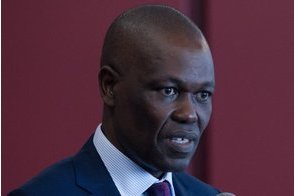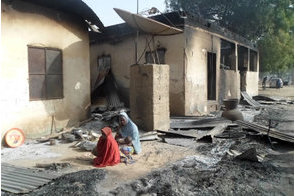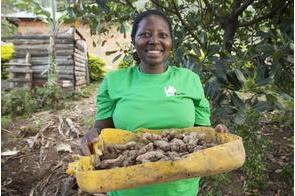Latest News
Nigerians condemn decades-long conflict between Fulani herdsmen and farmers

News Highlight
- 50 percent of Nigerians who were surveyed showed dissatisfaction with the handling of the recurrent clashes by the government.
The pervasiveness of the clashes between Fulani herdsmen and farmers in Nigeria has been condemned by Nigerians, according to the latest opinion poll conducted by NOIPolls. 60 percent of Nigerians who were surveyed said they were aware of the conflict while 50 percent showed dissatisfaction with the handling of the recurrent clashes by the government.
A statement released by NOIPolls on Tuesday said the decades-long conflict between herdsmen and farmers in Nigeria, especially in the north-central region, has claimed thousands of lives. Fulani herders and farmers are in constant violent conflict over the herdsmen’s increased need for access to grazing lands. According to a report by Human Rights Watch published in December 2013, violence between herdsmen, farmers and local communities led to the death of about 3,000 people between 2010 and 2013.
There have been reported cases recently of inter-communal conflicts between farmers and herdsmen in some states. One of the most violent conflicts which drew a lot of media attention was the massacre in Agatu, Benue State, which claimed over 500 lives. Residents of Angai and Ndole villages in Gashak local government area of Taraba State have reportedly fled their communities after herdsmen invaded their communities killing scores of people.
Nigeria has huge agricultural potential with over 84 million hectares of arable land, of which only 40 percent is cultivated. Pastoral farming is the most predominant system of livestock farming in Nigeria and the livestock owners are mostly nomads travelling across the country in search of grazing fields and ready market. Due to lack of laws on grazing areas, Fulani nomads take their livestock to different parts of the country, encroaching farmlands and destroying crops and livelihoods of farm-owners. Aggrieved farmers often kill the animals leading to conflict between the farmers and the herdsmen.
Given the recent incidents, NOIPolls -- which provides country-specific polling services in West Africa -- measured the level of awareness of Nigerians to the conflict between herdsmen and farmers. 60 percent of respondents were aware of the conflict, whereas 4 in 10 respondents were unaware. The poll, which was conducted last week, also revealed that the north-central region of Nigeria had the highest level of awareness of the conflict, especially in Benue State, considering the magnitude of the attacks in the region. 25 percent of the respondents personally knew victims of the conflicts.
Meanwhile, half (50 percent) of the respondents surveyed were dissatisfied with the way the government has been handling the crisis. A separate survey by Government Advancement Initiative for Nigeria (GAIN) revealed that 79 Percent of Nigerians rated the government’s handling of the conflict as generally poor.
29 percent of the respondents cited ‘dialogue to identify their problem’ as a possible path to resolution of the crisis. Another 29 percent stressed that the government should ‘provide grazing reserves for the herdsmen’. Other suggestions include ‘passing a law of restriction on herdsmen’ (14 percent), ‘providing adequate security and tight border’ (7 percent) and ‘educating both parties’ (5 percent), among other recommendations.
NOIPolls proposed that due to the domesticated practice of animal husbandry in Nigeria, it is important for the government to establish ranches as it remains the best global practice in animal husbandry. The company said this would serve as the permanent solution to the unending clashes and effectively address the conflicts between arable crop farmers and herdsmen crisis.
Related News
Latest Blogs
- Lessons for Nigeria's climate finance strategy
- Prospects of a cruise ship port in Nigeria’s blue economy
- Insights from Alame V Shell on corporate liability for environmental damage
- Threats and mitigation strategies against plastic waste in agriculture
- Iran v Israel, what it means for Nigeria
Most Popular News
- Artificial intelligence can help to reduce youth unemployment in Africa – ...
- Renewable energy boom highlights growing regional divide
- IMF commends reform at Federal Inland Revenue Service
- Global carbon pricing mobilises over $100 billion for public budgets
- Global foreign direct investment falls for second consecutive year – UNCTAD
- Allianz identifies wildfires as a growing global threat









